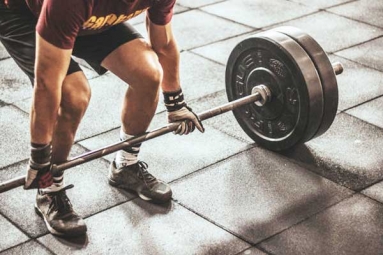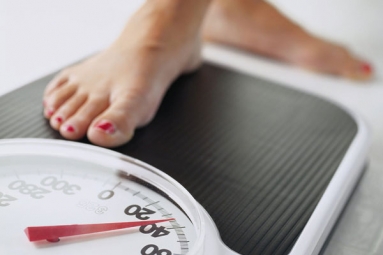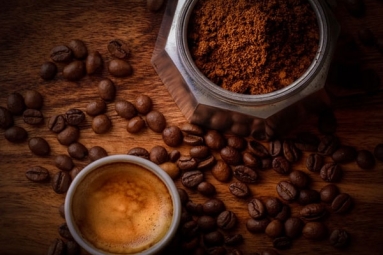
(Image source from: Canva.com)
As the realm of fitness evolves to embrace more thoughtful and natural approaches, coffee has carved out a new niche that extends beyond its traditional roles at breakfast and coffee shops. It is increasingly being acknowledged as a beneficial and natural choice for a pre-workout boost, enhancing endurance, sharpening mental acuity, and complementing mindful exercise practices. Within metropolitan fitness circles, both athletes and early morning enthusiasts are incorporating coffee into their routines, not merely for its stimulating effects but as a vital component of a broader performance regimen. Let's delve into the reasons coffee is becoming a favored source of pre-workout energy.
Advantages of Consuming Coffee Prior to Exercise:
A Natural Enhancer for Stamina and Performance: Caffeine, the primary ingredient found in coffee, has been extensively researched for its potential to enhance athletic performance. It raises adrenaline production, mobilizes fatty acids for energy, and improves the body’s capability to retain glycogen, which is essential for muscle energy during physical activities. Numerous studies suggest that consuming caffeine before workouts can result in increased stamina, a diminished feeling of fatigue, and greater output, particularly during moderate to high-intensity exercises. Unlike various artificial pre-workout products, coffee provides these advantages with fewer additives and allows for better dosage management.
Cognitive Boost Without the Jolt and Crash: A lesser-known yet significant benefit of adding coffee to a pre-workout routine is its positive impact on mental function. By inhibiting adenosine, a neurotransmitter that promotes sleepiness, and elevating dopamine levels, coffee helps to enhance alertness and focus. This leads to a smoother transition into physical activities, reducing the mental barriers that often come before exercising. For many, this increased clarity and motivation can be pivotal in determining whether they commit to a workout or choose to forgo it.
Hydration and the Diuretic Controversy: There have been long-standing concerns about coffee's potential dehydrating effects. However, recent studies suggest that moderate coffee consumption does not greatly influence hydration, especially in those who regularly consume it. The critical factor is moderation. When combined with sufficient water intake, a cup of coffee prior to exercising can aid in hydration rather than detract from it. For most people, especially those accustomed to caffeine, coffee serves as a beneficial and hydrating addition to their workout routines.
Coffee as a Pre-Workout Tradition: In contrast to instant powders, coffee provides an opportunity for a moment of reflection—a ritual before engaging in physical activity. Brewing methods such as pour-over, French press, or Aeropress demand attention and care. This brief period of mindfulness helps create a sense of preparedness, centering the body and concentrating the mind.
Each brewing technique offers its own distinct sensory journey. The French press produces a robust, richly flavored cup. In contrast, cold brew is milder on the digestive system and particularly refreshing in hotter weather. The Aeropress creates a concentrated, espresso-like effect. For individuals who consider fitness as both a mental and physical commitment, the process of making coffee becomes part of their overall regimen.
Beans and Roasts: Selecting the Ideal Boost: The pre-exercise effects of coffee can differ based on the type of bean and its roast. Arabica beans, celebrated for their smooth taste and diminished caffeine levels, are perfect for those who prefer a subtle energizing effect. Conversely, Robusta beans are more potent in flavor and caffeine content, making them suitable for rigorous workouts or early morning sessions. The roast type is also significant; light roasts typically retain more caffeine and intricate flavors, while dark roasts present richer, more intense profiles. Choosing the appropriate brew to match the workout is akin to selecting the right athletic shoes, enhancing personalization and routine.
Intelligent Additions, Health Advantages: Although black coffee remains the most straightforward and effective choice, enhancements can increase its functionality. Natural sweeteners such as jaggery or honey provide gradual energy release. Ingredients like cinnamon and ginger contribute anti-inflammatory properties. Alternatives to dairy, such as oat, almond, or coconut milk, provide a creamy consistency without heaviness, aiding digestion and sustaining energy. These additions enable individuals to tailor their coffee to fit their fitness aspirations while retaining its fundamental role as an energizer before exercise.
India’s Changing Coffee Landscape:
The perception of coffee in India is transforming from a comforting drink to a performance-oriented ritual. An increasing focus on bean sourcing, brewing techniques, and health considerations is notable. As home brewing becomes more popular among health-conscious consumers, coffee is being redefined—not solely as a stimulant but also as a means of aligning physical and mental well-being. At the forefront of this movement is Craft Coffee, the pioneering Indian brand that has launched Coffucha—a fermented, probiotic coffee beverage packed with antioxidants. With its effervescent, fruity taste, Coffucha introduces a gut-friendly aspect to coffee enjoyment, expanding how coffee can enhance overall wellness. While coffee cannot substitute for sleep, discipline, or proper nutrition, it presents a natural, thoughtful boost for any workout. With a minimal ingredient list and maximum benefits, coffee is quickly becoming a trusted pre-workout ritual, one cup at a time.





















